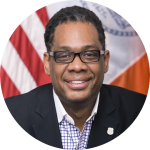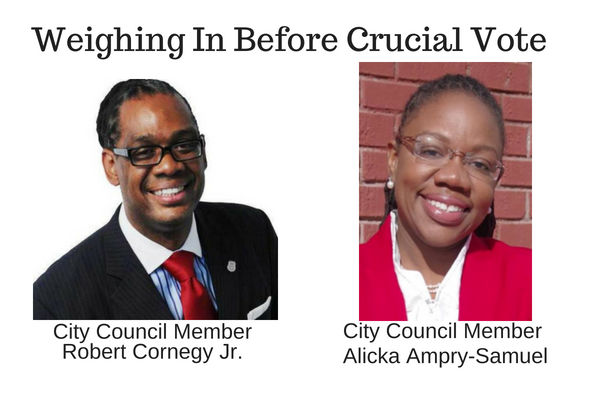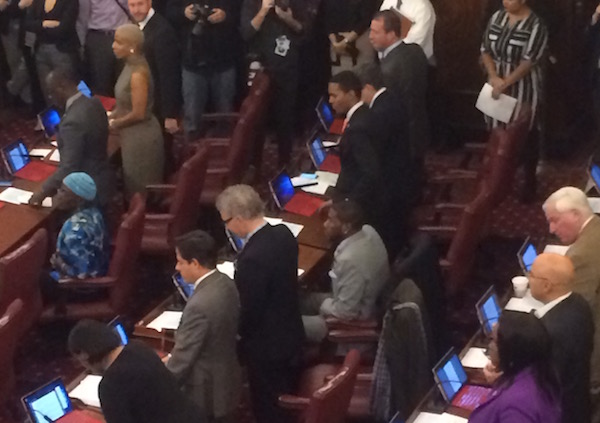City Council Members Robert Cornegy Jr. (D-Bedford-Stuyvesant) and Alicka Ampry-Samuel (D-Brownsville) weighed in with differing views on the city council’s expected vote this week to put a cap on the growth of ride-hailing apps such as Uber and Lyft.
Their views come against a backdrop of a long running joke/comment among black comedians and hip hop artists in their artistic work whereupon they say things like they may be free, but they still can’t get a cab in New York City.
The proposed cap comes as statistics have shown that ride-sharing apps increasingly serve long underserved communities of color and offer employments opportunities to young entrepreneurs with cars that like to choose their own hours and work closer to home.
The proposed legislation, Int. 144, which has the backing of City Council Speaker Corey Johnson (D-Manhattan) and much of the progressive caucus, would halt the issuance of new for-hire vehicle licenses, except for vehicles that are wheelchair accessible, while the city conducts a yearlong study of the industry.

Cornegy said he will vote against the measure, but will not participate in any protests against it because of his belief these protests are largely fueled by car-sharing apps such as Uber. He said his reasoning for voting against it is more in-depth as he has a strong belief that the shared economy overall has been inclusive to black communities.
Ride-hailing apps have helped the black community in both pick-ups and in giving people jobs as many black people can’t afford to own medallions.
“I’m a shared economy enthusiast overall and a supporter of shared economy platforms in a larger context,” said Cornegy. “Anecdotally, I took my family to the Intreprid Museum on the West Side recently and stood on the curb as cab after cab passed us by. I’m very wary of supporting an industry that has discriminated against me.”

Ampry-Samuel said there are several cab stands in her district and residents have generally not had a problem getting cabs.
She also notes that while ride-hailing apps such as Uber does service the neighborhood, and her mother uses the service, there are now more than 100,000 for-hire vehicle licenses on the road in the city.
She noted that when her mother calls a Uber there are sometimes 10 cars in the neighborhood all competing to pick her up. With so many people competing for the rides it makes it harder for any one person to make a living, Ampry-Samuel said.
Ampry-Samuel said by putting a temporary cap on the amount of for-hire vehicle licenses it will make it easier for the ones that currently have a license to make a fair living.








